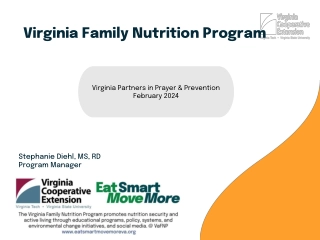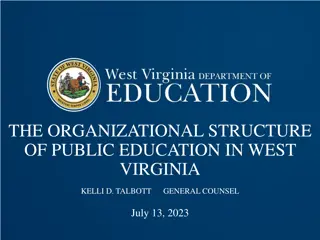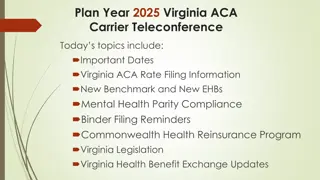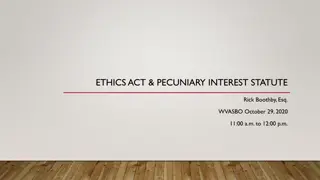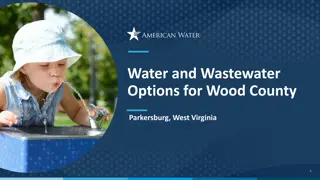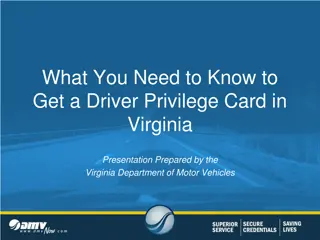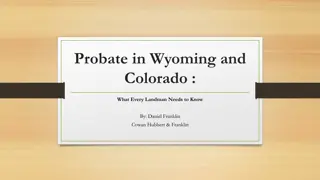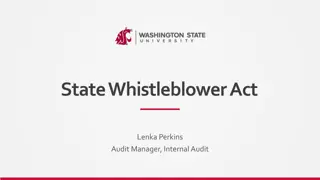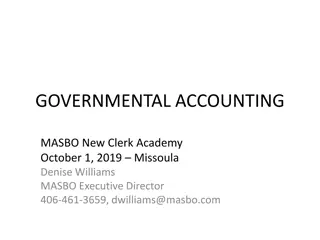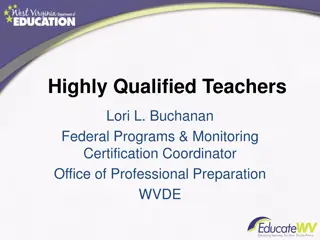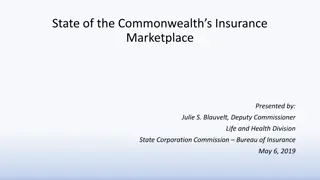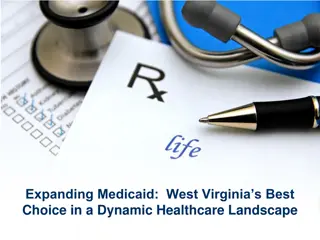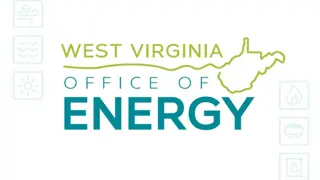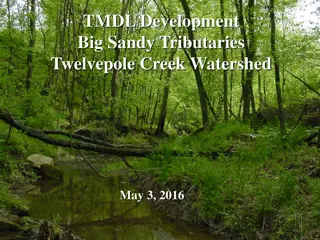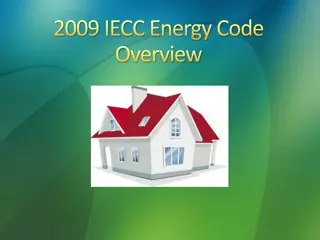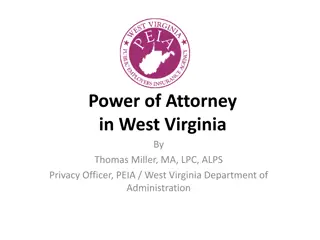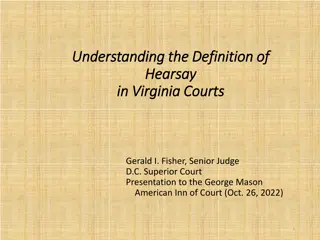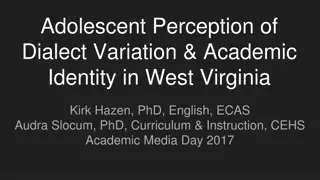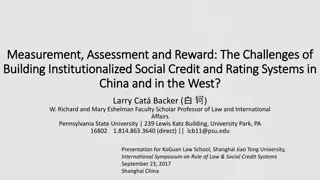The West Virginia Open Governmental Proceedings Act
The West Virginia Open Governmental Proceedings Act promotes transparency in government by allowing public input to shape actions and policies. It emphasizes the importance of openness, public access, and informed control over government operations. The act covers meeting notices, conduct, minutes, executive sessions, violations, penalties, and education. It clarifies what gatherings are not considered meetings and highlights instances where open/closed meetings are specified by law.
Download Presentation

Please find below an Image/Link to download the presentation.
The content on the website is provided AS IS for your information and personal use only. It may not be sold, licensed, or shared on other websites without obtaining consent from the author.If you encounter any issues during the download, it is possible that the publisher has removed the file from their server.
You are allowed to download the files provided on this website for personal or commercial use, subject to the condition that they are used lawfully. All files are the property of their respective owners.
The content on the website is provided AS IS for your information and personal use only. It may not be sold, licensed, or shared on other websites without obtaining consent from the author.
E N D
Presentation Transcript
Overview of The West Virginia Open Governmental Proceedings Act Roger Hanshaw Trey Morrone October 29, 2020 1
Legislative Intent W. Va. Code 6-9A-1 Openness fosters preparation and public input which allow government agencies to more closely tailor actions and policies to public needs The people in delegating authority do not give their public servants the right to decide what is good for them to know and what is not good for them to know Openness, public access, and a desire to improve government operations do not require nor permit every meeting to be a public meeting Informed people retain control over the instruments of government 3
The Meaning of Meeting W. Va. Code 6-9A-2(4) The convening of a governing body Of a public agency For which a quorum is required To make a decision or deliberate toward a decision on any matter which results in official action Telephone meetings? I. Special requirements must be met 4
The Act Covers: Meeting notice: When, where, how Meeting conduct: Speakers, order, voting, media Meeting minutes: Contents and access Executive sessions: Grounds and procedure Violations: Civil and criminal penalties and consequences Education and interpretation 5
Not Covered: Gatherings That Are Not Meetings W. Va. Code 6-9A-2(4)(A) through (E) Making adjudicatory decisions On site inspections Political party caucuses General discussions with no intent to lead to action Discussions of meeting logistics and procedures 6
Also Not Covered W. Va. Code 6-9A-3 Open/closed meetings expressly and specifically provided by other provisions of law 7
The Key Question: Is it a Meeting? Is it a meeting under the Sunshine Law when more than a quorum participates in: I. information sessions? II. work sessions? III.committee work? IV.parking lot conversation? V.telephone tag? VI.e-mail discussions? VII.polling? 8
Meetings in a school system contest With that in mind, what is a meeting? W. Va. Code 6-9A-2(5) defines a meeting as: I. the convening of a governing body of a public agency for which a quorum is required in order to make a decision or to deliberate toward a decision on any matter which results in an official action. Meetings may be held by telephone conference or other electronic means. Be careful not to have an accidental meeting.
McComas v. Fayette County Bd. of Education McComas v. Bd. of Educ. Fayette Co., 197 W. Va. 188 (1996). In 1996, the Fayette County Board of Education was facing the question of whether to move forward with a consolidation plan. After a series of informal discussions and gatherings, none of which involved a quorum of the board, the board eventually voted to consolidate. Citizens filed a lawsuit alleging violations of the WVOGPA. The circuit court, and later the West Virginia Supreme Court, found that the board HAD violated the act by having what amounted to a meeting to decide the question of consolidation.
Meeting Notice: When, Where, How W. Va. Code 6-9A-3 Every public body must have a policy providing for making available to public and news media, in advance, the I. Date, time, place, and agenda of all regularly scheduled meetings II. Date, time, place and purpose of all special meetings Exception: In the event of an emergency requiring immediate official action I. File a meeting notice at any time prior to meeting stating: A. The date, time, place, and purpose of the meeting B. The facts and circumstances of the emergency 12
Meeting Notice: When, Where, How How much notice? According to the W. Va. Open Governmental Meetings Advisory Committee, the minimum requirements are: I. For bodies which meet twice or less per month: A. 3 business days notice of regular meetings B. 2 business days notice of amendments to regular meeting agendas C. 2 business days notice of special meetings II. For bodies that meet more often: A. 2 business days notice of regular meetings B. Otherwise, the same as above 13
A Word About Agendas At a regular meeting, the body may not deliberate or take action upon an item that was not on the agenda At a special meeting, the body may not deliberate or take action upon an item that was not a stated purpose in the notice of meeting Items on the agenda must be described with sufficient flexibility, but may be worded to give clear notice of flexibility I. Unacceptable: New business, Old business, Other business, Personnel matters Topics not on the agenda that come up during delegations may be listened to but not acted upon 14
POSTING MEETING NOTICES & AGENDAS At least three business days before a regularly scheduled meeting At least two business days before a special meeting Consider the following when computing the number of business days required for giving appropriate notice: Saturdays Sundays Legal Holidays Day of the Meeting Outside School Environment (OSE) Days Out-of-Calendar (OC) Days Open Meetings Advisory Opinion No. 2019-01 (January 3, 2019)
CHANGES TO AGENDA DURING MEETING Changing the order of business at beginning or during a meeting Inherent discretion As circumstances require Subject to duly adopted procedural rules Open Meetings Advisory Opinion No. 2008-011 (September 04, 2008) New matters arise during course of a meeting Discussion Official action or decision must be deferred Open Meetings Advisory Opinion No. 2008-017 (December 04, 2008)
ITEMS NOT LISTED ON THE AGENDA A matter must be listed on the agenda in order to: vote discuss the merits deliberate towards a decision Open Meetings Advisory Opinion No. 2011-03 (May 5, 2011)
WORK SESSIONS Work Sessions with Quorum of Members Agenda must be published which identifies items to be discussed (even if no voting) Agenda must be published in a manner consistent with the county boards usual and regular procedures for noticing an official meeting Work Sessions withLess Than Quorum of Members Discussions by less than quorum of county board members when acting as a subgroup of the county board and meeting to exercise some portion of county board s authority Open Meetings Advisory Opinion No. 2013-06 (February 06, 2014)
INVOICES & COUNTY BOARD APPROVAL Agenda Item Approve Invoices Payment of Bills No requirement that the agenda list each invoice and the amount being considered Open Meetings Advisory Opinion No. 2012-04 (December 6, 2012)
ENSURING PUBLIC ACCESS TO INFORMATION General agenda items and do not list on agenda all payments being considered musteither make available for public review at least two business days before the meeting: a list of all invoices being considered and including name of each vendor amount owed to each or all invoices being considered In either case, the agenda must state under the agenda item that a list of the invoices or the invoices themselves are available for review Open Meetings Advisory Opinion No. 2012-04 (December 6, 2012)
Meeting Minutes: Contents and Access Attendees can verify that what they think happened did happen, and non-attendees can learn what happened. 21
Meeting Minutes: Contents & Access W. Va. Code 6-9A-5 Minimum contents: Meeting date, time, and place Name of each member present and absent Each motion and other measure proposed, by whom, and the disposition The results of all votes and, upon request of a member, the vote of each member, by name Optional matters Executive sessions exception 22
MINUTES BECOME OFFICIAL RECORD Minutes become the official record of a county board meeting when approved by the county board at its next meeting When must minutes be made available to the public? draft minutes official minutes reasonable period of time material changes Open Meetings Advisory Opinion No. 2010-04 (October 7, 2010)
INVOICES & COUNTY BOARD MINUTES In its minutes, the governing body may simply indicate that there was a motion to approve invoices and that it passed If the minutes do not record the name and amount of every invoice approved, governing bodies should attach to the minutes a list of the invoices approved and the amount of each Open Meetings Advisory Opinion No. 2012-04 (December 6, 2012)
GRANT AWARDS OR REQUESTS FOR MONEY Agenda sufficient wording - Consider grant application of Sue Smith Motion must include the amount being awarded Minutes must include name of recipient and the amount awarded Open Meetings Advisory Opinion No. 2012-04 (December 6, 2012)
Meeting Conduct: Speakers, Order, Voting, Media Open meetings are required even when logistical and other challenges occur, but the challenges can be surmounted. 26
Meeting Conduct: Speakers, Order, Voting, Media W. Va. Code 6-9A-3, 8, 9 Presumption: Open meetings Radio and television: Placement and use, pooling Crowded meetings: Attendance and presentation rules Disruption: The right to attend is not the right to disrupt The 15 minute rule Action by reference; written ballots 27
Executive Sessions: Grounds and Procedure 28
Executive Sessions: Grounds and Procedure W. Va. Code 6-9A-4 No wholly secret meetings. You must at least convene and adjourn in public. No decisions in executive session What is a decision? Discretion to go into executive session 29
The Justifications for Executive Session War and riot Personnel matters and hearings (specific personnel matters, not policy matters) Disciplining a student License and certification actions A person s physical or mental health Unwarranted invasion of a person s privacy Crime prevention; law enforcement Security personnel/devices Property transactions, construction plans, investments & commercial competition, IF publicity would harm public interest Secrecy of prizes and awards Settlements Matters rendered confidential by law 30
The Procedure for Going Into Executive Session Not determined by the agenda The ONLY valid way: I. Motion adopted in public session, stating the reason: A.Identify the authorization under the statute for going into executive session B.Pointer: be as specific as you can without negating the very reason that confidentiality is warranted II. Presiding officer s announcement of the authorization to the public and the body 31
Executive Sessions: Issues Under the Act Individuals may force a public session in the case of: I. Personnel matters and hearings II. Disciplining a student III.Specific license and certification actions IV.A person s physical or mental health Exceptions to the Act s no decision rule? I. Disciplining a student II. Settlement 32
Executive Sessions: Consultation with an Attorney? W. Va. Code 6-9A-4(b)(11): Nothing in this article permits a public agency to close a meeting that otherwise would be open, merely because an agency attorney is present Peters v. County Commission of Wood County (1999): Privileged communications between a public body and its attorney may be closed to the public, but only by I. A majority affirmative vote of the members II. In accordance with the notice requirements of 6-9A-3 III. If the written minutes requirements of 6-9A-5 are observed 33
Violations: Civil and Criminal Consequences W. Va. Code 6-9A-3, 6, 7 Civil Remedies: I. Compel compliance, enjoin non-compliance II. Nullify decisions III. Order future compliance IV.Attorney fees and expenses V. Bond issue exception VI.Recorded in minutes Criminal Penalties: I. Misdemeanor A. First offense: fine not to exceed $500 B. Subsequent offenses: fine of between $100 and $1,000 34
Education and Interpretation W. Va. Code 6-9A-10, 11 Committee on Open Governmental Meetings I. A committee of the W. Va. Governmental Ethics Commission A. http://www.ethics.wv.gov/openmeetings/Pages/default.aspx II. Advisory opinions A. Binding on the requesting party B. Immunity if act in good faith on the opinion, or on an opinion regarding another body C. Confidentiality D. Phone: 558-0664; 1-866-558-0664 35
Education and Interpretation W. Va. Code 6-9A-12 The Attorney General compiles open meetings statutes, case law, summaries and interpretations The Clerk of the County Commission must I. provide the compilation to each elected official within the jurisdiction II. make the material available to appointed public officials III.provide a copy or summary to newly appointed or elected persons within 30 days of when they take the oath of office or, as to appointees, when they begin their term





